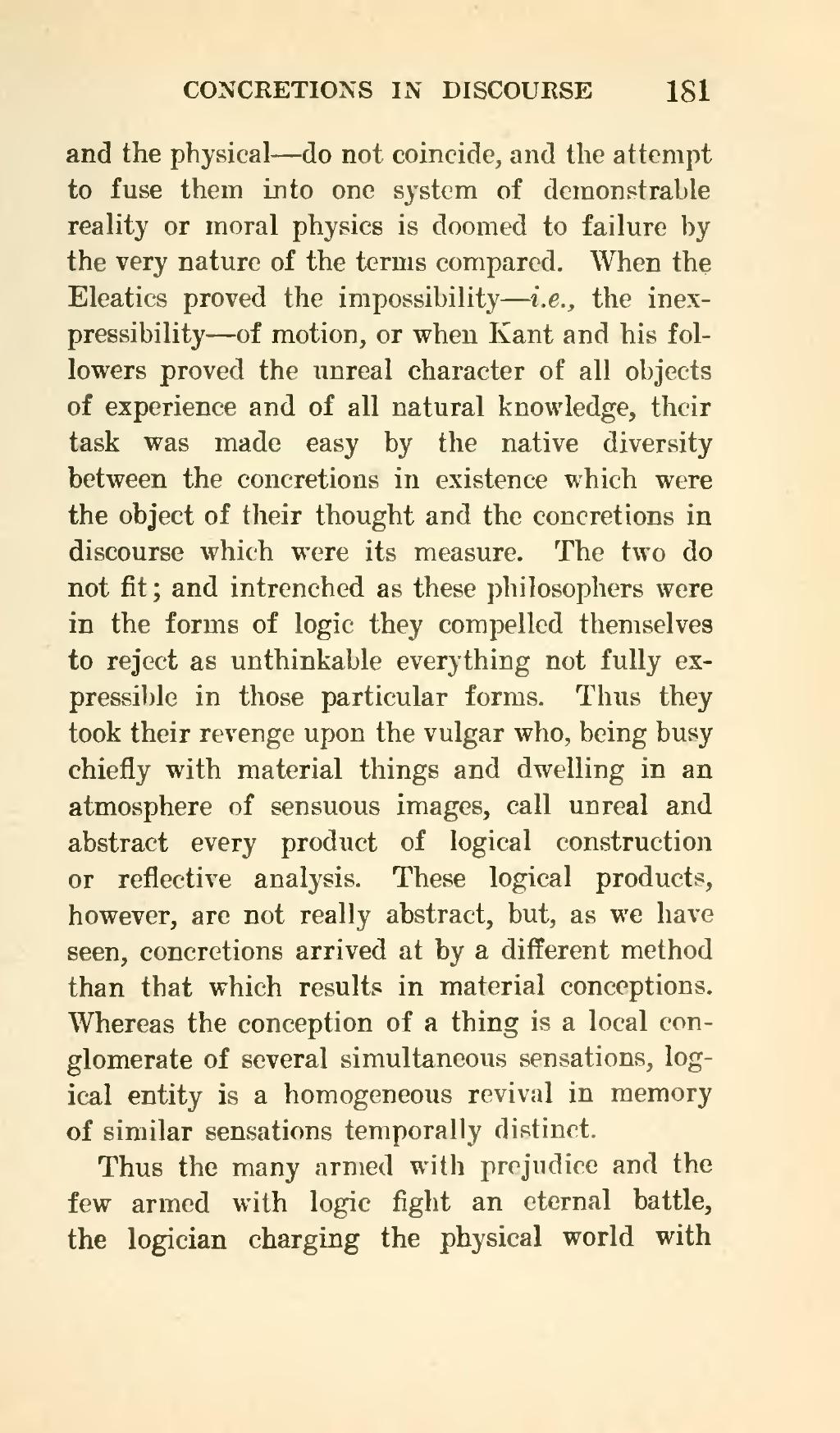and the physical—do not coincide, and the attempt to fuse them into one system of demonstrable reality or moral physics is doomed to failure by the very nature of the terms compared. When the Eleatics proved the impossibility—i.e., the inexpressibility—of motion, or when Kant and his followers proved the unreal character of all objects of experience and of all natural knowledge, their task was made easy by the native diversity between the concretions in existence which were the object of their thought and the concretions in discourse which were its measure. The two do not fit; and intrenched as these philosophers were in the forms of logic they compelled themselves to reject as unthinkable everything not fully expressible in those particular forms. Thus they took their revenge upon the vulgar who, being busy chiefly with material things and dwelling in an atmosphere of sensuous images, call unreal and abstract every product of logical construction or reflective analysis. These logical products, however, are not really abstract, but, as we have seen, concretions arrived at by a different method than that which results in material conceptions. Whereas the conception of a thing is a local conglomerate of several simultaneous sensations, logical entity is a homogeneous revival in memory of similar sensations temporally distinct.
Thus the many armed with prejudice and the few armed with logic fight an eternal battle, the logician charging the physical world with
